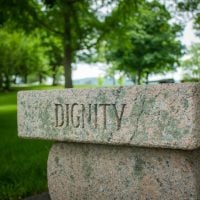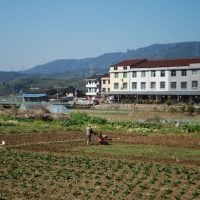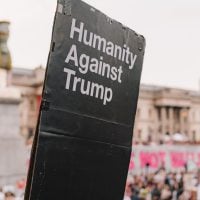Deadline: 07-Mar-2024
The European Commission (EU) has launched a call for proposals to strengthen CSOs as independent actors of governance and development in their own right.
The EU has actively supported the work of civil society organisations in the Philippines over the past few years through the Thematic Programme for Civil Society, other thematic budget lines (such as the Thematic Programme for Democracy and Human Rights) and through its bilateral programmes. The priorities of this new Call reflect the objectives of the EU Roadmap for engagement with civil society in the Philippines 2021-2024 of CSO participation in domestic policies and CSO capacity strengthening. In its commitment to support actions on gender equality and women empowerment, the EU Gender Action Plan III country level implementation plan (CLIP) for the Philippines 2021-2025 aims at involving women organisations and organisations working on gender equality in consultation, policy dialogue, projects, advocacy and outreach activities. Integrating the Women, Peace Agenda is a priority area of the CLIP.
Objectives of the Programme and Priority Issues
- The specific objective(s) of this call for proposals are:
- Strengthened capacities of local CSOs’ to engage in policy dialogue at national level and in dialogue, implementation and monitoring of national development plans and programmes;
- Improved capacity and ability of local civil society partners to uphold and promote an enabling environment in the Philippines;
- Strengthened capacity of local CSOs to engage in gender equality and youth inclusion and strengthened capacity of local women’s and youth partner CSOs.
- The priority(ies) of this call for proposals are:
- Support the implementation of the Women Peace and Security (WPS) agenda nation-wide;
- Enhance community resilience though circular green economy;
- Fostering the use of digital technologies as an enabler for good governance
Funding Information
- The overall indicative amount made available under this call for proposals is EUR 4.561.500. The contracting authority reserves the right not to award all available funds.
- Indicative allocation of funds by lot:
- Lot 1: EUR 2.600.000
- minimum amount: EUR 1.250.000
- maximum amount: EUR 1.300.000
- Lot 2: EUR 1.261.000
- minimum amount: EUR 600.000
- maximum amount: EUR 630.500
- Lot 3: EUR 700.500
- minimum amount: EUR 300.250
- maximum amount: EUR 350.250
- Lot 1: EUR 2.600.000
- Any grant requested under this call for proposals must fall between the following minimum and maximum percentages of total eligible costs of the action:
- Minimum percentage: 60 % of the total eligible costs of the action.
- Maximum percentage: 90 % of the total eligible costs of the action (see also Section 2.1.4) – in case of applicant(s) (and affiliated entity(ies) where applicable) established in any of the locations laid down in Section 2.1.3. (i.e. Philippines), only applicable in case of a mono-beneficiary grant or a multi-beneficiary grant where all members of the partnership (lead applicant, co-applicants and affiliated entities) are local organisations.
- Maximum percentage: 75 % of the total eligible costs of the action.
Eligible Actions
- Sectors or themes
- Gender equality, good governance, security, peacebuilding, participation, prevention, protection, relief and recovery.
- Circular economy, climate change adaptation, green transition, disaster risk reduction, resilience.
- Digital governance, digital skills/ literacy; digital services.
- All proposals must clearly identify one of the focal themes addressed by the action. Therefore, under this Call for Proposals, the projects to be financed should be any one under one of the following lots:
- LOT 1: Support the implementation of the Women Peace and Security (WPS) agenda nation-wide through reinforced capacities and participation of CSOs and local community organisations/associations throughout the WPS policy process.
- The lot covers initiatives aimed at addressing traditional as well as emerging security challenges (natural and man-induced), encompassing violent extremism, conflict prevention, resolution, peacebuilding, post conflict reconstruction and development as well as climate change threats, pandemics, trafficking in persons, threats to cybersecurity and violent extremism. It seeks to address the differential impact of security crises on women and men, and to broaden the understanding of WPS beyond that of a “women’s issue”, including by increasing the involvement of men in the implementation of the agenda. The focus is on localisation and institutionalisation of the WPS agenda.
- LOT 2: Enhance community resilience through circular green economy to achieve tangible impacts for target communities, improving their livelihoods and enabling them to build their climate resilience in a sustainable way.
- Proposals under this lot are expected to address one or more of the following areas (non-exhaustive list):
- Supporting local civil society to participate in local governance system and structures and in accountability processes related to DRRM and climate change adaptation (CCA).
- Supporting participative local adaptation planning and strengthening LGU-CSO collaboration in DRRM and CCA;
- Monitoring and Evaluation (M&E) processes for enhanced climate and disaster-resilient communities
- Supporting knowledge sharing, co-creation, and communication to support the enhancement of community resilience, including understanding of nature-based solutions.
- Developing ecosystem-based DRR/ adaptation systems that can be upscaled (sustainable and adaptive measures to increase resilience of agricultural dependent communities to climate change; construction/expansion of infrastructure reducing communities’ vulnerability to climate change; development and dissemination of viable energy saving solutions, etc.);
- Ensuring a gender-sensitive approach is integrated in climate-change related dialogues, the planning of related measures, and their implementation.
- Provision of small grants to small NGOs, grassroots or community-based organisations for practical initiatives addressing climate change.
- Proposals under this lot are expected to address one or more of the following areas (non-exhaustive list):
- LOT 3: Fostering the use of digital technologies as an enabler for good governance.
- Proposals under this lot are expected to address one or more of the following areas:
- Strengthening of partnerships and linkages between civil society and relevant stakeholders including government and private sector partners technology companies and investors;
- Development of civic technologies, including but not limited to platforms/ applications for citizen monitoring of government performance, citizen feedback on public services, information sharing.
- Facilitating access to mobile and digital technology as a channel for good governance
- Strengthening media literacy, digital literacy and skills to the benefit of political, social and economic empowerment of individuals and communities, strengthening digital literacy for marginalised civil society groups.
- Enabling civil society actors to proactively defend themselves against digital threats
- Proposals under this lot are expected to address one or more of the following areas:
- LOT 1: Support the implementation of the Women Peace and Security (WPS) agenda nation-wide through reinforced capacities and participation of CSOs and local community organisations/associations throughout the WPS policy process.
Eligibility Criteria
- Lead applicant
- In order to be eligible for a grant, the lead applicant must:
- be a legal person and
- be non-profit-making and
- be a specific type of organisation such as: non-governmental organisation, a civil society organisation or a civil society organisation association and
- be established in the Philippines or a Member State of the European Union.
- be directly responsible for the preparation and management of the action with the coapplicant(s) and affiliated entity(ies), not acting as an intermediary.
- In order to be eligible for a grant, the lead applicant must:
- Co-applicant(s)
- Co-applicants participate in designing and implementing the action, and the costs they incur are eligible in the same way as those incurred by the lead applicant.
For more information, visit European Commission (EC).









































